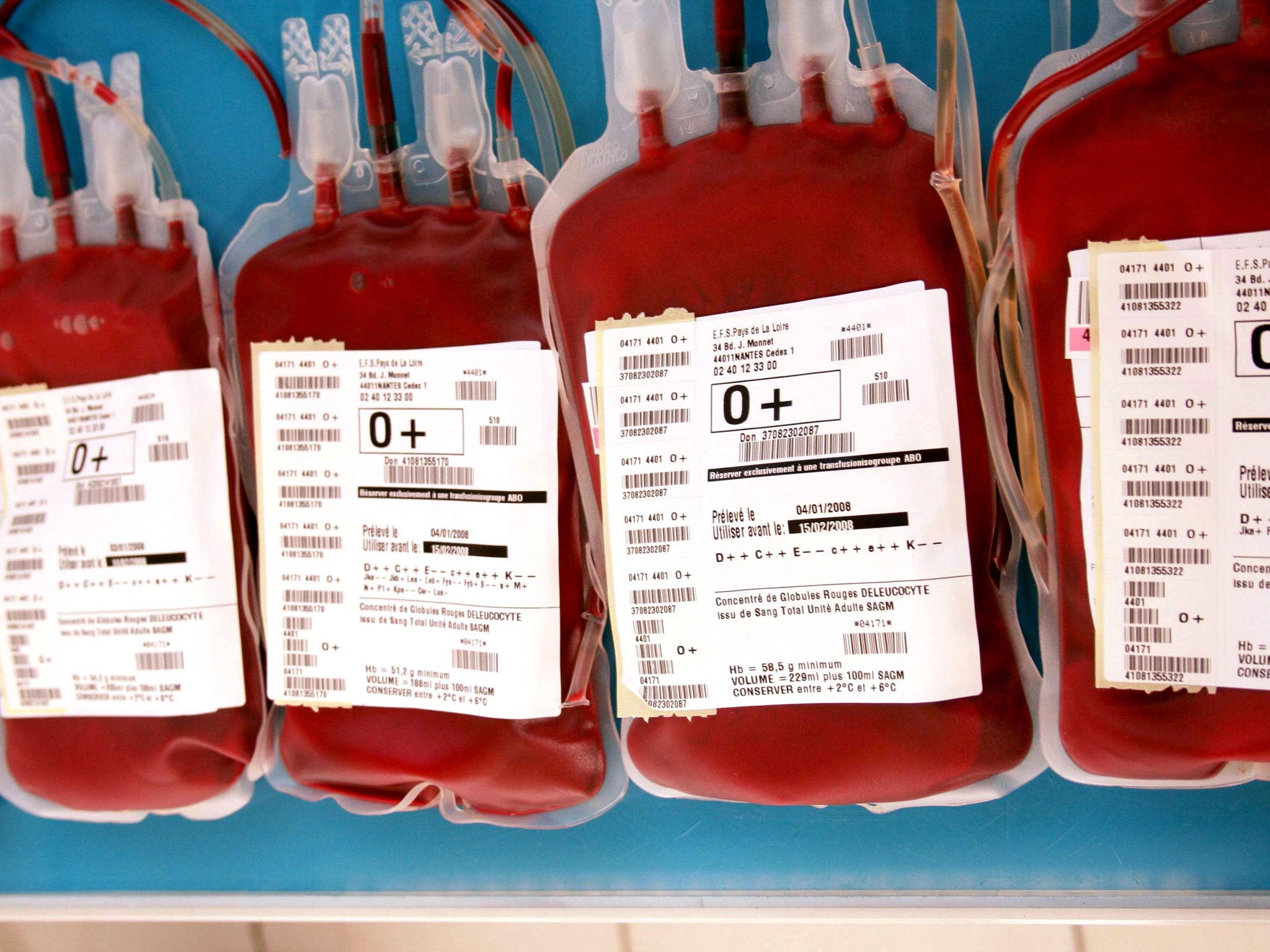Andy Burnham wants to put my gay blood back on the agenda. Am I supposed to say thank-you?
The last time I tried - and failed - to give blood, I was turned away. But now blood supplies are dangerously low, perhaps the NHS will be forced to update its attitude

Your support helps us to tell the story
From reproductive rights to climate change to Big Tech, The Independent is on the ground when the story is developing. Whether it's investigating the financials of Elon Musk's pro-Trump PAC or producing our latest documentary, 'The A Word', which shines a light on the American women fighting for reproductive rights, we know how important it is to parse out the facts from the messaging.
At such a critical moment in US history, we need reporters on the ground. Your donation allows us to keep sending journalists to speak to both sides of the story.
The Independent is trusted by Americans across the entire political spectrum. And unlike many other quality news outlets, we choose not to lock Americans out of our reporting and analysis with paywalls. We believe quality journalism should be available to everyone, paid for by those who can afford it.
Your support makes all the difference.So Andy Burnham has called for a review of the current gay blood ban. That’s nice of him, I suppose, but I hope he doesn’t mind if I don’t get too excited about his acceptance of the queers just yet.
Often, when I bring up the ‘gay blood ban’ in conversation, people don’t know anything about it. That’s admittedly probably because I move in somewhat of a liberal echo chamber – but let me explain, for anyone who isn’t in the know. Essentially, men who have had sex with another man (or men), within the 365 days preceding the date of their donation, are under current regulations unable to donate blood, at all. This rules out a huge chunk of gay men, including those in committed and long-term relationships. Meanwhile, we’re low on blood supplies and a tiny minority of the UK population donates. ‘Perfect storm’, anyone?
A little before Andy’s recent statement, you might remember the ‘Missing Type’ campaign run by Give Blood NHS. The campaign had enormous pick-up, with companies such as the Odeon and Waterstones – and even iconic places like Downing Street - removing the letters ‘O’ ‘A’ and ‘B’ from their various signs and logos. The goal of the campaign was raising awareness of declining blood supplies, since 120,000 fewer people donated blood in 2014/15 than in 2004/05 – and if 240,000 new donors don’t sign up this year, the supplies will dip below safe levels.
I enjoy a marketing campaign as much as the next media type, but this one in particular brought to mind the last time I tried – and failed – to give blood. On that day, a very jovial man in the street was ushering people towards one of those travelling blood bank units. I’d never given blood before, and was excited to do my part. After filling in the questionnaire, however, I was turned away because I was gay. Technically of course, I was turned away because I was a gay man who has sex.
The whole experience left me feeling dirty, and the implicit message - “Sorry, we don’t want your blood because you’re gay, and you have gay sex, so that means you might be HIV-positive” – however well-disguised, eloquent and gently expressed, is emblematic of a point of view that gay folk from my generation rarely encounter in our day-to-day lives. We thought this sort of thinking died out, after it became apparent that HIV doesn’t actually discriminate by sexuality, isn’t actually a judgment sent from God, and poses far more of a global problem for those engaging in unprotected straight sex than gay sex. At a time when blood supplies are in danger of running low, it seems churlish to continue an ill-thought-out policy against gay men.
Back to Andy, then. I’m glad that he’s brought up the topic, even if the cynic in me says it’s all about dredging up votes from another section of society. The antediluvian legislation that prevents gay men from giving blood - including those gay men in loving, monogamous relationships practising exclusively ‘safe’ sex – which at the same time permits the most aggressively promiscuous of people having sex with the opposite gender, even if they practise ‘dangerous’ sex, does of course need addressing. I don’t have anything against aggressive promiscuity, incidentally, just the peculiar juxtaposition of those two very different standpoints. It’s good to have Andy as our champion in this, even if his reasons might not be particularly noble.
Many gay men, when they discover that their blood isn’t up to scratch, end up feeling disappointed in the society they live in. Quite a few of my peers have admitted that they give anyway, and lie. Personally, the issue brings out the contrarian in me: if they don’t want my dirty blood, then fine, they shan’t have it. That will be seen by some as being antagonistic, unhelpful, even maybe destructive, but I make no apology for it. Discrimination is now tedious to me, and I’d rather get on with enjoying whatever it is we get up to, and wait for society to realise that actually we really aren’t all that much of a threat.
If Andy has helped begin this discussion though, that’s a great start. But it’s everyone else who needs to change.
Join our commenting forum
Join thought-provoking conversations, follow other Independent readers and see their replies
Comments